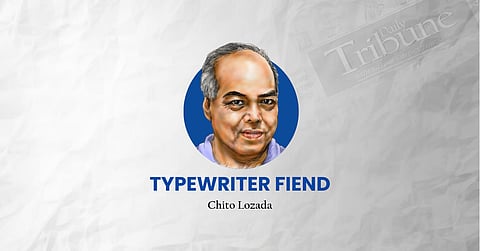
- NEWS
- the EDIT
- COMMENTARY
- BUSINESS
- LIFE
- SHOW
- ACTION
- GLOBAL GOALS
- SNAPS
- DYARYO TIRADA
- MORE

The misuse of foreign Official Development Assistance (ODA) loans will have a lasting and detrimental impact on the nation in terms of its integrity among the donors who may in the future deny the country access to cheap and readily available financing for high-impact projects.
Davao City Rep. Sid Ungab and former Budget chief Butch Abad share the sentiment that the distortion of the budget for foreign-assisted projects (FAPs) is a bigger threat than the hundreds of billions of pesos lost to shoddy flood control projects.
The erosion of the country’s credibility with international financial institutions is expected, as the FAPs carry sovereign guarantees, which the government pledges to pay backed by the full faith and credit of the Republic of the Philippines.
By removing the projects from the programmed appropriations in the national budget, Congress risked not only higher deficits and wasted taxpayer money on unused loan commitments. It threatened the nation with possible credit rating downgrades, delays in flagship infrastructure projects, and rising commitment fees.
“How do we face the World Bank, Asian Development Bank, the Japan International Cooperation Agency and other foreign creditors after this? How do we ask for new support when we cannot even honor the projects we had already begged for? The whole budget process turned the Philippines into a laughingstock,” said Ungab.
The distortion of the budget, in which the FAPs were placed under the unprogrammed appropriations (UA) --- which are contingent on additional funding — occurred at the bicameral conference committee (bicam).
Ungab now wants to know: “Who allowed this fiscal disaster to pass?”
“Either this was gross negligence or a deliberate sabotage of our development agenda. Both are equally unacceptable. Some people must be held accountable for this monumental blunder. The Filipino people should not pay the price for incompetence, greed, or both,” he stressed.
In 2024, of the P246 billion requested by the President for FAPs, Congress authorized only P4 billion, which meant 98.4 percent of the critical projects were killed outright with one stroke.
In 2025, the request for P215.6 billion was once again reduced, with P150 billion left unfunded and pushed to the UA.
The Departments of Agrarian Reform, Agriculture, Health, Education and even the DPWH received nothing for ODA-funded projects in 2024.
“These are not luxuries. These are railways to decongest our cities, flood control systems to protect communities, and agricultural programs to feed our people. What kind of Congress celebrates signed loan agreements with JICA, ADB, and the World Bank — then turns around and tells them, ‘Sorry, we moved it to the unprogrammed.’ This is fiscal recklessness of the highest order,” Ungab stressed.
Abad said affected were flagship projects of the Department of Transportation and the DPWH.
“A loan agreement had already been signed, and it was just being routed through the national budget because this was public money. It needed Congress’ authorization. So that meant we already had a commitment to implement these in 2024. But what Congress did — for example, to give you a concrete example — in the Department of Transportation’s allotted P224 billion, there were several foreign-assisted project lines,” Abad said.
“They took it. So the big question then is, what will the lenders say when the money is gone and those foreign-assisted projects can’t be implemented?” Abad asked.
“What will happen? First, we’ll have to pay penalties. They call it commitment fees. Second, of course, our credibility with our lenders — even our budget, 40 percent of our budget comes from loans — so they’ll be upset with us, and our reputation and creditworthiness will be damaged. That’s the big problem,” Abad echoed Ungab.
If the waste of budget funds as a result of the shady flood control projects can be branded as plunder, the defunding of the ODA contracts is clearly a form of treason.
